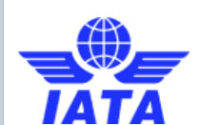5 Workforce Predictions For 2023
by Aaron Portero, Managing Director of Connect Group
2021 was the year of The Great Resignation and 2022 was the year of quiet quitting. With more than a decade in leadership roles and an intimate knowledge of key challenges and opportunities for businesses in the region, Managing Director of Connect Group, Aaron Portero, has five predictions for 2023.
- Companies double down on employee benefits
Amid an uncertain economic climate, employee retention is everything. While some companies may not be able to give their employees pay rises, they’ll look to double down on employee benefits. From an increased focus on physical and mental health with gym memberships to stocking the office pantry, offering training and education opportunities, and even hybrid working, we are starting to see more employee benefits coming in as businesses strengthen their employee value proposition.
- A surge in expats from Europe
Between high inflation, flagging growth and an energy crisis, Europe isn’t in the best shape. We are receiving a record number of visa applications to work in the UAE, mostly coming from Europe. In 2022, Connect Group issued 17% of visas to clients from European countries. Companies are looking to move their HQs to the Middle East for better tax benefits, skilled personnel are leaving – particularly from the IT sector – and people in general are seeking a better work life balance.
- Employees campaign a 4-day work week
While a lot of research points to the 4-day workweek being highly productive, for me the jury is still out on this one. Individuals and companies participating in studies are often support the shorter week or are currently trialling it which skews the findings.
The 4-day work week could work, but it’s not for all industries. For example, a cyber security business couldn’t work down to a 4-day work week – the business would collapse. What would happen during a security breach on the off day?
Though it isn’t a new concept, it’s gaining traction in Western European countries, Australia and Canada.
Before jumping in, businesses need to plan, prepare guidelines and conduct training sessions. There also needs to be contingencies for when things go wrong and more working hours are needed. It will be far from a smooth transition, after all the 5-day work week has been in place since 1938. But in favour of increased productivity and happier employees, some businesses will take the plunge.
- Freelancers become the new norm in workforces
The UAE opened the floodgates to freelancers back in April 2022 when the country introduced a range of new visas and residency permits. As part-time work isn’t as prevalent in the UAE as it is in other parts of the world, freelancers have filled the gap. In 2022, the demand for freelance visas increased by 400% at Connect Group. There’s huge demand among businesses for freelancers – both because companies are hamstrung with budgets or looking to fill positions that don’t quite require a full-time commitment. Industry-wide, we’re seeing companies adapt their workforce, redefine roles and their operations to make the most of freelancers coming to the region.
- Companies consider the Chief Remote Officer role
Although it’s been two years since the pandemic and transitioning between in-office to remote working, we still haven’t nailed the hybrid model. Those who have the option to work remotely still choose to come in a few days in the office and employees who work completely remotely, on the other side of the world, generally don’t feel fulfilled or connected without working in an office.
To make the hybrid model and remote workforces work, businesses will start to consider hiring Chief Remote Officer. Falling under the people and culture remit, the person will be responsible to implementing initiatives both virtually and in-person to connect everyone.








 Email: info@cyber-gear.com
Email: info@cyber-gear.com